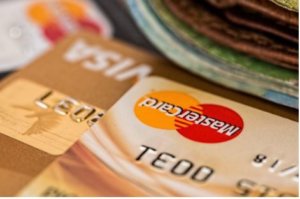How different types of digital payment can affect your business – Op Ed
Jonathan Booth, an academic from Bristol, looks at the use of digital payment processing among a cross section of online industries.

By Jonathan Booth, a freelancer writer based in Bristol. He is a BA (Hons) graduate, and has a specific interest in the study of business and finance.
It is nigh on impossible to run a modern business without the capacity for taking digital payments, especially if you expect it to grow. While cash may work if you’re a dog walker, childminder or gardener, anyone trying to take larger payments will struggle without a digital option. And if you want your business to operate on or over the internet, then cash is no longer viable.
It’s a good thing then that there are loads of digital payment options out there, giving you the freedom to choose one that is right for you and your business. Simply put, a digital payment is one where money is exchanged without the use of physical currency. This includes debit/credit card payments, internet back transfers, and e-wallets. Digital payments can be taken in person, using a card reader, or made over the internet by entering card/bank details, often through a third-party provider such as Visa.
E-wallets
The future of digital payments! There are dozens of e-wallet options out there; some of the most popular in the UK include Stripe, PayPal and WorldPay, which are free for the customer but charge the company who uses them a fixed rate per transaction. An e-wallet stores your debit card or bank account information digitally, meaning that you don’t need to input the card details every time you want to make a purchase. If the e-wallet is stored on a device – like Apple Pay on your smartphone – then you only have to tap it on a reader to make a payment. The added security of needing biometric data to activate gives the user real peace of mind.
E-wallets can also be used to store various digital currencies that are traded online such as digital assets and are used widely by electronic trading companies. All transactions of this type are anonymous, protected from hackers, and there is no need for exchange rates when making international payments. As digital and alternative methods of payment are still an emerging market, there are some businesses which haven’t considered them to be a viable investment yet, which can be a real turn off for the younger generations who are increasingly turning to more modern payment methods and living cashless lives.
Many different business sectors have differing views on accepting electronic payments via digital methods, as do online trading companies, however the online gaming sector is the most diverse. With it becoming a topic more people are discussing, some entertainment sites saw this as an advantage to get ahead of the mainstream. Online sites giving customers the option to purchase video games using digital assets began to appear, with the intention of giving millennials an incentive into using that site. Several sites also provide the option to pay via distributed ledger systems in which some customers tend to believe that this is a more secure and private method of payment.
However, most entertainment and e-commerce sites do not accept digital currencies due to the security issues that also come along with it. Some igaming sites have taken the option to not accept this payment method and instead seek other ways to lure new customers such as younger adults into using their sites. Some entertainment sites offer incentives (which I do not condone) like major type of slot bonuses to minimise risk for new customers trying their brand and rewarding loyal customers who continuously use their brand. This type of incentive aims to be a replacement for the lack of digital payment method that some millennials now prefer to use.
Card Payments
Probably the form of digital payment that people are most familiar with, and one of the most flexible: cards can be used in the shops, and by typing the number into a processing page, they can also be used to pay for goods online. Being able to take card payments is a sign that your business is respectable, but also alludes to success. This is because the software providers who process your card payments charge a pretty high fee, compared to some of the other methods like e-wallets.

Many businesses feel this to be a price worth paying for the benefits that taking card payments bring. There is added security because the physical card is needed, either to be scanned by a card reader or for all the numbers and security codes to be read from it and entered online, and because bank cards come as standard with a bank account, they are readily available and easily accessible for everyone.
Also, because card payments are the only form of digital payments which do not exist solely online, business which operate both on- and offline can provide consistency for their customers. This is especially important for large corporations like supermarkets and clothes retailers, as their customers may alternate between shopping online and visiting stores.
Bank Transfers
The cheapest, but ultimately least professional, digital transfer method. Requiring someone to access their online banking set up and manually transfer money into your account, payments have the advantage of being instant, but security is low. Enter the wrong account number and your money will never reach its intended destination or make its way back to you. Your account will also register the bank details of every payment made into it, something customers may not be willing to reveal. It is a method best suited to payments between friends and family, or smaller concerns where a personal service is offered, like pet-sitting or cleaning.
Conclusions
When considering digital payment options, it is important to evaluate both the needs of the business and its clients. Where these are different, the variety of digital payment options will be able to provide a solution that will allow you to compromise. Giving customers the option to pay digitally is considered a vital service now, and thanks to the proliferation of e-wallets it is so easy to do: just look at the explosion of home-run craft businesses that sell through Etsy and Facebook and take payments through PayPal.
The digital payment revolution is being almost entirely driven by the emergence of these e-wallets. With transparent fee structures and a wide customer base, they benefit online retailers by making it effortless for customers to make a purchase. Similarly, the ability to save details for repeated use, and all the security of a debit card purchase, mean that they are favoured by customers too. With younger users growing more technologically savvy, it looks like e-wallets and digital payments will soon become more norm than novelty, and businesses will need to recognise this in order to keep up with the times.
The subject matter and the content of this article are solely the views of the author. FinanceFeeds does not bear any legal responsibility for the content of this article and they do not reflect the viewpoint of FinanceFeeds or its editorial staff.









